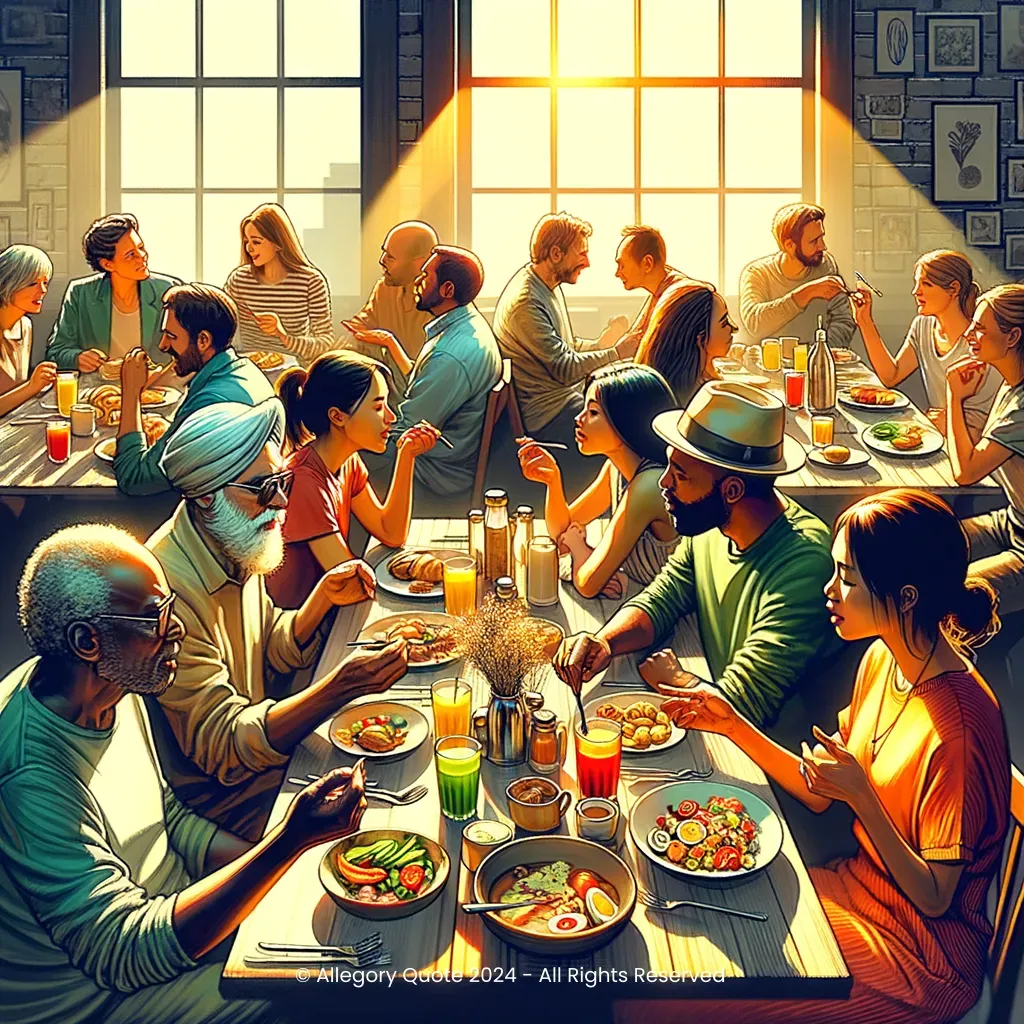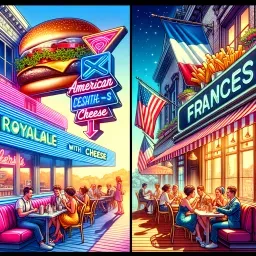”Looks like me and Vincent caught you boys at breakfast.
Sorry about that. What you having?“

0
0
0
0
- Meaning
- The meaning of this phrase can be interpreted as a moment that highlights the unexpected encounters in life and the informal human interactions that can occur even in tense situations. It reflects themes of randomness and the moments that, although seemingly quotidian, can lead to revealing and impactful exchanges.
- Allegory
- The image should include elements that represent the essence of human connection and unexpected encounters—a diner filled with various people enjoying their breakfast, illustrating how ordinary settings can foster meaningful dialogues. Include elements that convey warmth, community, and the richness of shared moments, evoking a sense of hope and positivity in everyday interactions.
- Applicability
- In personal life, this phrase can be applied to encourage openness to unexpected interactions and recognizing the significance of everyday moments, even when they appear trivial. It reminds us to be present and aware during unplanned encounters.
- Impact
- The impact of this phrase is significant within film culture, as it encapsulates the blend of humor and tension that defines much of Tarantino's work. It demonstrates how ordinary conversations can take place in extraordinary circumstances, influencing countless dialogues in film and popular media.
- Historical Context
- This phrase originates from the early 1990s, with "Pulp Fiction" being released in 1994. It is rooted in a cultural context where the film explored themes of violence, redemption, and the intertwining of various narratives in a non-linear storytelling structure.
- Criticisms
- There have been various interpretations of "Pulp Fiction" and its language use, with some criticism pointing to potential glorification of violence. The casual nature of this phrase juxtaposed against the violent context of the scene raises questions about morality and humanity in cinematic storytelling.
- Variations
- In other cultures, phrases that reflect on unexpected meetings or the simplicity of daily routines can differ in expression. For instance, in Japanese culture, the concept of "ichigo-ichie" conveys the uniqueness of each encounter, which parallels the spontaneity portrayed in this quote.
-

As you proclaim peace with your lips, be careful to have it even more fully in your heart.
-

Just because you are a character doesn't mean that you have character.
-

With friends like these, who needs enemies?
-

All the darkness in the world cannot extinguish the light of a single candle.
-

Do you know what they call a Royale with Cheese?
-

If my answers frighten you, then you should cease asking scary questions.
-

To infinity and beyond!
-

Goddamn it, what’s happening to us, man?
-

You’ve got a friend in me.
-

Bring out the gimp.
No Comments